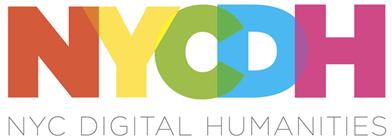Dear all,
It is my great pleasure to invite you next Wednesday, February 18, at 6:15pm to Columbia’s Heyman Center for a talk by and conversation with Nadia Altschul on philology writ-large, it’s relationship to DH and the meaning of ‘method’ in the humanities. The event is open to the public (first come, first seated). I should note that the event is also one of our group for experimental methods in the humanities ‘encounters.’ For those of you who have not been able to participate in our group or our series this is great opportunity to come see what we’re up to. Here’s hoping you do join us! If you have any questions about how to get here, send me a line.
Here is the very provocative blurb:
Philology and the reconstruction of texts has been a main humanistic method since the purported end of the middle ages. Today’s exchange will delve into the history of philology and its basic methodological assumptions, bringing to the fore some of its colonial underpinnings, and asking digital humanists, as part of the conversation, about connections between DH and this core method in humanities research.
The On Method Heyman Center Workshop Series will examine the range of methods, theoretical and practical, used by humanities scholars and critics, past and present. What are the overarching techniques (technê)–what John Unsworth calls our “scholarly primitives”–and epistemologies (epistēmē), or theoretical apparati, inherent to humanities research? How are the technological challenges and opportunities provided by new research methods (computational, quantitative), organizational structures (labs, workshops, co-working) tethered to epistemological shifts as well? Following Thomas Kuhn, can we outline paradigms of humanistic inquiry? Does it make sense to define “method” in the context of the humanities, and if so, what are the varieties that method has taken on? What are the national speicificities of these methods and of descriptions of the humanities itself?
While much time has been spent theorizing the “digital” in Digital Humanities, the workshop seeks to gain a greater understanding of the heritage and future of humanities methods in general, while contextualizing more precisely the contributions of computational approaches in the process.
